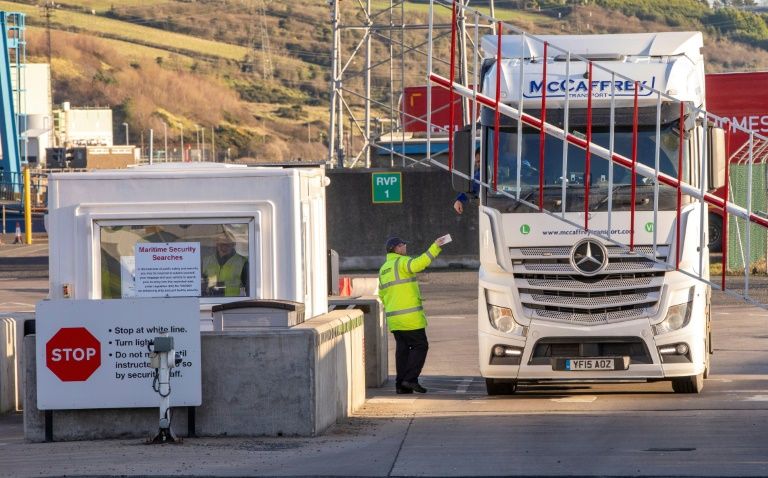EU, UK face ‘narrow path’ to Brexit breakthrough in final push
Brussels (AFP) – EU and UK post-Brexit trade talks reached crisis point on Monday with the outcome highly uncertain and the risk of a damaging “no-deal” still alive.
EU chief negotiator Michel Barnier and his UK counterpart David Frost worked late into Sunday in Brussels, scrambling to close out a deal after eight months of fraught talks.
Ireland’s Prime Minister Micheal Martin warned the chances for a deal were only “50-50”, while sources close to the talks said discussions were slow and expectations low.
Britain left the EU on January 31 but will exit the EU’s single market at year’s end after a transition period originally intended to give time to bind new ties.
The goal of the negotiations is to establish a trade relationship with zero tariffs and zero quotas in hopes of avoiding major disruptions come January 1.
Barnier and Frost are expected to keep talking through Monday, and report back to their respective bosses, EU chief Ursula von der Leyen and UK Prime Minister Boris Johnson.
The two leaders will speak by phone later in the day.
All eyes are on an EU summit on Thursday, with the prospect that any deal — or the failure to find one — will be put to the bloc’s 27 leaders at that time.
A source close to the talks said the situation was “very difficult” and that negotiations were in their “last useful days”.
“We are on a very narrow path and it is impossible to predict the outcome,” the source explained.
Several sources said the hardest issue was how to guarantee fair trade in future ties and establish a quick penalty mechanism if either side were to backtrack on, for example, environmental or health standards.
Britain is very reluctant to accept a broad and binding arrangement, seeing it as an infringement on its new-found sovereignty after 47 years of EU membership.
“In essence, if the talks fail now, the two sides didn’t manage to agree what constitutes foul play and what to do about it,” an EU diplomat said.
– ‘Huge decision’ –
Johnson has insisted Britain will “prosper mightily” whatever the outcome of the talks, but he will face severe political turbulence if he cannot seal a deal.
“Johnson has a huge decision to make in the next 48 hours,” said Mujtaba Rahman of the Eurasia Group, a consultancy.
“A majority of the Cabinet would prefer an agreement to limit the disruption at the borders on January 1, but will back the Prime Minister’s judgement if he opts for no deal,” he said.
Without a deal, tariffs would be levied on the huge volumes of trade passing between the UK and the European continent, through the Channel tunnel and by ship, starting on January 1.
Travellers between both sides would also be affected with further passport delays and red tape for foreign residents and businesses.
Ireland’s Martin insisted that “a no-deal would be very damaging to all concerned, to the United Kingdom, to the Irish economy and indeed to economies of member states as well.”
“It’s very, very important that common sense prevails here and that a deal is done,” he added, and pointed to Thursday’s summit as a critical moment.
France meanwhile is seen as the most reluctant to compromise among the Europeans, taking the toughest line against the UK, especially on fishing rights and preserving fair trade rules.
For the second time in three days, Europe Minister Clement Beaune on Sunday warned that France could veto a deal if French interests were not protected.
The warning was seen as intended for both Britain and EU partners that Paris fears are too soft on London, most notably Germany.
Disclaimer: Validity of the above story is for 7 Days from original date of publishing. Source: AFP.


